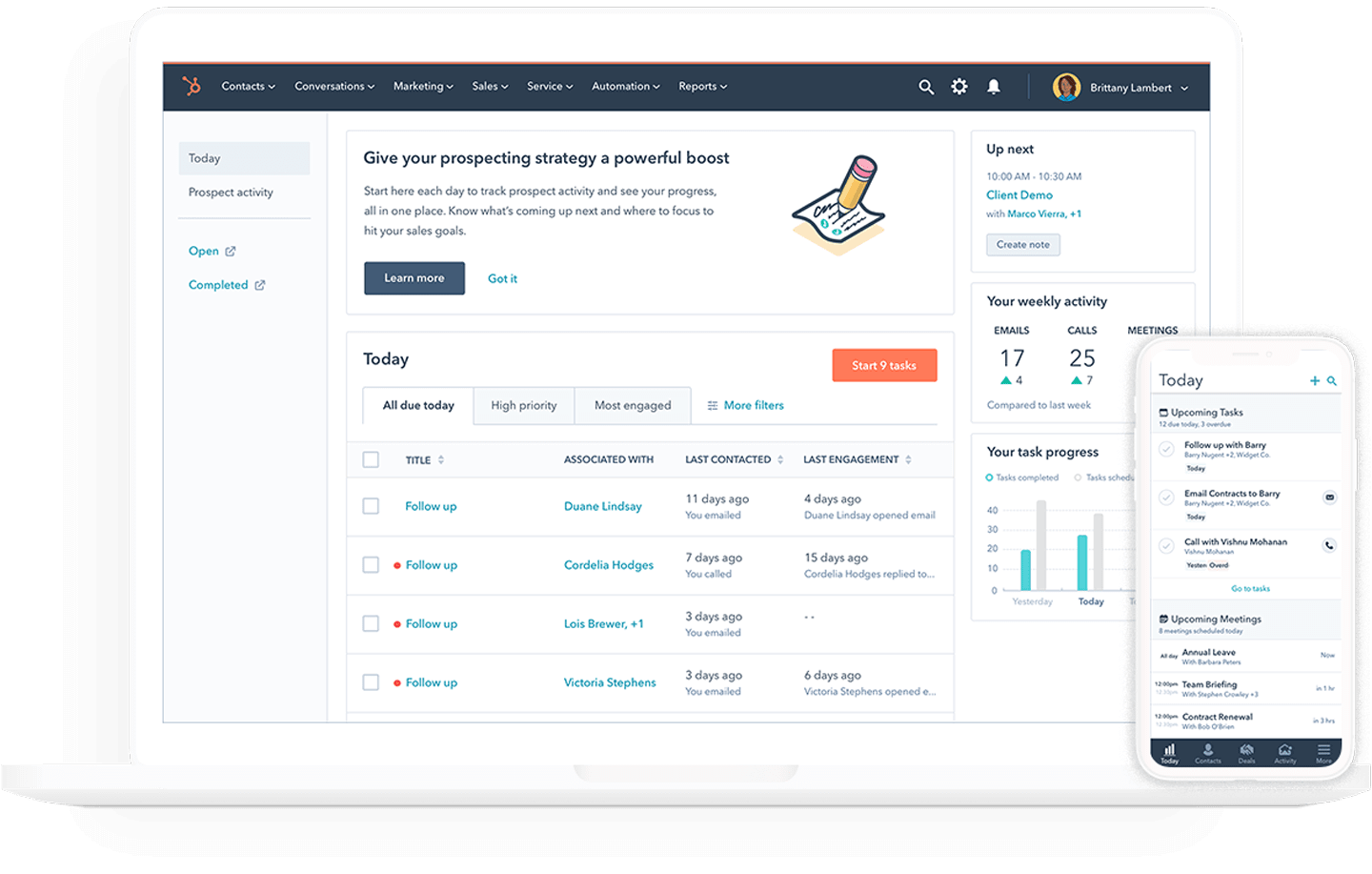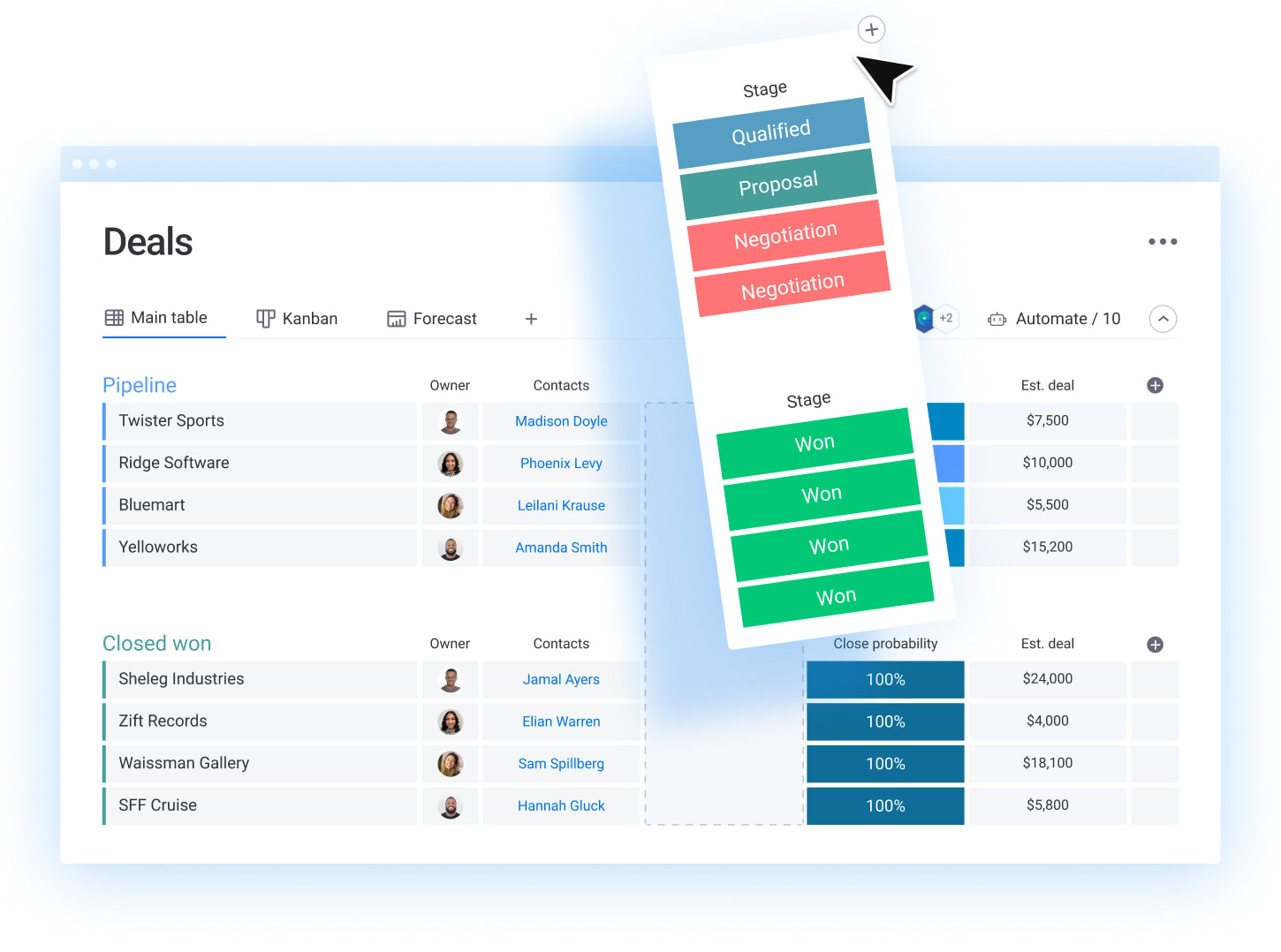Crm free – In today’s competitive business landscape, customer relationship management (CRM) software has become an indispensable tool for businesses of all sizes. However, the cost of traditional CRM solutions can be prohibitive for many small businesses and startups. Enter free CRM software, a game-changer that provides access to essential CRM features without breaking the bank.
This comprehensive guide will delve into the features, benefits, and limitations of free CRM software, empowering you to make an informed decision about the right solution for your business. We’ll also provide a step-by-step guide to implementing and using free CRM software effectively, ensuring you maximize its potential.
Features of Free CRM Software

Free CRM software provides a range of features to assist businesses in managing their customer relationships. These features typically include contact management, lead tracking, sales pipeline management, and reporting.
Contact management features allow businesses to store and organize customer information, including contact details, notes, and communication history. Lead tracking features help businesses track the progress of potential customers through the sales funnel, from initial contact to closed deal. Sales pipeline management features provide businesses with a visual representation of their sales process, allowing them to track the status of each deal and identify potential bottlenecks.
Benefits and Limitations of Free CRM Features
Free CRM software can provide a number of benefits to businesses, including:
- Reduced costs: Free CRM software eliminates the need for expensive software licenses and maintenance fees.
- Improved efficiency: CRM software can help businesses streamline their sales and marketing processes, leading to increased efficiency and productivity.
- Enhanced customer relationships: CRM software can help businesses track customer interactions and preferences, enabling them to provide personalized and targeted service.
However, there are also some limitations to free CRM software, including:
- Limited features: Free CRM software may not offer the same level of features and functionality as paid CRM software.
- Limited support: Free CRM software may not provide the same level of support as paid CRM software, which can be a problem if businesses encounter technical issues.
- Data security concerns: Free CRM software may not offer the same level of data security as paid CRM software, which can be a concern for businesses that handle sensitive customer data.
Examples of Popular Free CRM Software
There are a number of popular free CRM software options available, including:
- HubSpot CRM: HubSpot CRM is a popular free CRM software that offers a range of features, including contact management, lead tracking, sales pipeline management, and reporting.
- Zoho CRM: Zoho CRM is another popular free CRM software that offers a range of features, including contact management, lead tracking, sales pipeline management, and reporting.
- Insightly CRM: Insightly CRM is a free CRM software that offers a range of features, including contact management, lead tracking, sales pipeline management, and reporting.
The best free CRM software for a particular business will depend on the specific needs of the business.
Benefits of Using Free CRM Software
Free CRM software offers numerous advantages for businesses of all sizes. Here are some key benefits:
Cost Savings:Free CRM software eliminates the need for expensive licensing fees, making it an affordable solution for businesses with limited budgets. This cost-effectiveness allows businesses to invest their resources in other areas of their operations.
Ease of Use:Free CRM software is typically designed with user-friendliness in mind. It offers intuitive interfaces and simple navigation, making it easy for even non-technical users to get started quickly. This ease of use reduces the need for extensive training and minimizes the disruption to business operations.
Scalability:Free CRM software can scale to meet the growing needs of businesses. As a business expands, it can easily add more users, features, and integrations to accommodate its evolving requirements. This scalability ensures that the CRM system remains a valuable asset throughout the business’s growth journey.
Integration Capabilities:Free CRM software often offers integration capabilities with other business applications, such as email marketing platforms, accounting software, and e-commerce systems. These integrations streamline business processes, improve data accuracy, and enhance productivity.
Case Studies and Success Stories
Numerous businesses have experienced significant benefits from using free CRM software. For example, a small business owner reported a 20% increase in sales after implementing a free CRM system. The CRM helped them track customer interactions, manage leads, and nurture relationships, resulting in improved customer satisfaction and increased revenue.Another example is a non-profit organization that used free CRM software to manage its donor database.
The CRM enabled them to track donations, send personalized communications, and segment their donor base. This resulted in increased donor engagement and a significant increase in fundraising revenue.
Limitations of Free CRM Software

While free CRM software offers many benefits, it also has certain limitations that users should be aware of before making a decision.
Storage Limits
Free CRM software often comes with limited storage space, which can be a significant drawback for businesses that require a large amount of data storage. This can be a problem for businesses that need to store customer information, sales data, and other important files.
Functionality Restrictions
Free CRM software may also have limited functionality compared to paid CRM software. This can include restrictions on the number of users, the number of contacts, and the number of features that are available. This can make it difficult for businesses to use free CRM software to meet their specific needs.
Lack of Advanced Features
Free CRM software often lacks advanced features that are available in paid CRM software. These features can include things like marketing automation, sales forecasting, and customer segmentation. This can make it difficult for businesses to use free CRM software to grow their business.
Trade-offs between Free and Paid CRM Software, Crm free
When considering free CRM software, it is important to weigh the benefits and limitations carefully. Free CRM software can be a good option for small businesses or businesses that are just starting out. However, businesses that need more storage space, more functionality, or more advanced features may need to consider paid CRM software.
Choosing the Right Free CRM Software

Selecting the ideal free CRM software for your business requires careful consideration. Here’s a step-by-step guide to help you make an informed decision.
First, assess your business size, industry, and specific requirements. Consider the number of users, the features you need (e.g., contact management, sales tracking, marketing automation), and any industry-specific functionalities.
Comparison of Free CRM Software Options
Compare different free CRM software options based on factors such as features, ease of use, customer support, and integration capabilities. A comparison table or chart can help you visualize the key differences.
| CRM Software | Features | Ease of Use | Customer Support | Integrations |
|---|---|---|---|---|
| HubSpot CRM | Contact management, sales pipeline tracking, marketing automation, reporting | Easy to navigate and use | 24/7 live chat and email support | Integrates with Gmail, Outlook, and other business tools |
| Zoho CRM | Lead management, opportunity tracking, project management, collaboration tools | Somewhat complex for beginners | Comprehensive online help center and community forum | Integrates with Zoho suite of products and third-party apps |
| Freshsales CRM | Sales automation, AI-powered lead scoring, built-in phone and email | Intuitive and user-friendly interface | Dedicated account manager and 24/7 email support | Integrates with Google Workspace, Salesforce, and other platforms |
Implementing and Using Free CRM Software
Implementing and using free CRM software effectively requires careful planning and execution. Here’s a detailed guide to help you get started:
Setting Up User Accounts
Begin by creating user accounts for your team. Assign roles and permissions based on individual responsibilities. Ensure that each user has the necessary access to relevant modules and data.
Importing Data
Import existing customer data from spreadsheets, databases, or other sources into the CRM. Choose the appropriate import format and map fields correctly to avoid data loss or inconsistencies.
Customizing the Software
Tailor the CRM to fit your specific business needs. Customize fields, create custom views, and set up automated workflows to streamline processes and improve efficiency.
Maximizing Benefits
- Use the CRM consistently to track customer interactions and manage relationships.
- Leverage automation features to save time and reduce manual errors.
- Analyze data to identify trends, improve decision-making, and enhance customer experiences.
Avoiding Pitfalls
- Avoid overloading the CRM with unnecessary data. Keep it clean and organized for optimal performance.
- Train users thoroughly to ensure proper software usage and data integrity.
- Regularly update the CRM with the latest features and security patches to maintain functionality and security.
Advanced Features of Paid CRM Software

Free CRM software provides essential features for basic customer relationship management, but paid CRM software offers more advanced capabilities that can significantly enhance business operations. These advanced features enable businesses to automate tasks, gain deeper insights into customer behavior, and improve overall efficiency.
One of the key advantages of paid CRM software is its ability to integrate with other business systems, such as marketing automation platforms, sales forecasting tools, and customer support systems. This integration allows businesses to streamline their workflows and gain a comprehensive view of their customer interactions.
Marketing Automation
Paid CRM software typically offers robust marketing automation capabilities that enable businesses to automate repetitive tasks, such as email campaigns, social media marketing, and lead generation. These features help businesses nurture leads, segment customers, and track campaign performance, ultimately improving marketing effectiveness.
Sales Forecasting
Sales forecasting is another advanced feature commonly found in paid CRM software. These tools provide businesses with the ability to forecast future sales based on historical data, market trends, and customer behavior. This information helps businesses make informed decisions about resource allocation, inventory management, and sales strategies.
Customer Support Tools
Paid CRM software often includes comprehensive customer support tools that enable businesses to provide exceptional customer service. These tools include features such as ticket management, knowledge base, and live chat, allowing businesses to resolve customer inquiries efficiently and effectively.
Benefits of Upgrading to Paid CRM Software
Upgrading to paid CRM software can provide significant benefits for businesses with specific needs. These benefits include:
- Increased efficiency through automation
- Improved customer insights and segmentation
- Enhanced sales forecasting and decision-making
- Improved customer support and satisfaction
- Integration with other business systems
Businesses that require advanced CRM capabilities to support their growth and customer engagement should consider upgrading to paid CRM software.
Ultimate Conclusion: Crm Free

Whether you’re a small business owner looking to streamline your operations or a startup seeking a cost-effective CRM solution, free CRM software offers a powerful and accessible way to manage your customer relationships. By understanding the features, benefits, and limitations of free CRM software, you can make an informed decision and harness its potential to drive business growth and success.
Quick FAQs
What are the key features of free CRM software?
Free CRM software typically offers a range of features, including contact management, lead tracking, sales pipelines, and reporting. However, the specific features available may vary depending on the provider.
What are the benefits of using free CRM software?
Free CRM software offers several benefits, including cost savings, ease of use, scalability, and integration capabilities. It can help businesses improve customer relationships, streamline sales processes, and increase productivity.
What are the limitations of free CRM software?
Free CRM software may have certain limitations, such as storage limits, functionality restrictions, and lack of advanced features. It’s important to carefully consider your business needs and choose a solution that meets your requirements.